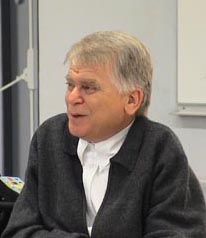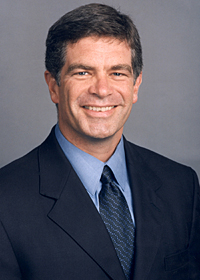 The BBC has an economics editor named Evan Davis who has a blog on understanding the real world using the tool kit of economics. There are two recent entries (here and here) on queueing results. Now the English are famous for their queueing discipline, but Davis is concerned with two examples of “non-obvious” queues: road congestion and waits for health services. In both cases, there are significant costs to queueing and the economic effect is that since people enter the queue only when the benefit of the service outways the cost of queueing, many people end up with very little value (the queue increases to wipe away the consumer surplus). This is a nice example of combining economics with operations research (many OR models have very simple queue entry rules, like “will enter always” or “will enter only if queue size <=12"), but using economics to guide the consumer behavior leads to better insights.
Davis shows his economist (not OR!) training in stating the following:
The BBC has an economics editor named Evan Davis who has a blog on understanding the real world using the tool kit of economics. There are two recent entries (here and here) on queueing results. Now the English are famous for their queueing discipline, but Davis is concerned with two examples of “non-obvious” queues: road congestion and waits for health services. In both cases, there are significant costs to queueing and the economic effect is that since people enter the queue only when the benefit of the service outways the cost of queueing, many people end up with very little value (the queue increases to wipe away the consumer surplus). This is a nice example of combining economics with operations research (many OR models have very simple queue entry rules, like “will enter always” or “will enter only if queue size <=12"), but using economics to guide the consumer behavior leads to better insights.
Davis shows his economist (not OR!) training in stating the following:
There are three very simple rules about queues.• 1. They grow longer when the number of people joining at the back of the queue exceeds the rate at which people are being dealt with at the front.
• 2. They grow shorter when the rate at which people are dealt with at the front exceeds the rate at which people join at the back.
• 3. They stay constant when the flow of new arrivals is equal to the flow of people being seen.
It is the last point that is incorrect, assuming there is any variation at all in either service or queue entry. If flow of arrivals equals flow of people being seen, the queue will continue to increase (on average). This point is actually very important. Managers are constantly being told to look for inefficiencies, and having more service than customers looks like an inefficiency, so they work at getting service = customers. The result is long queues (unless there is no variation in service or queue entry). Unless there is slack in the system, the system doesn’t work.
Davis does mention Operations Research (surprisingly: Operational Research would be more “british”):
Queuing theory is in fact, quite a science. It comes up in the discipline of Operations Research, which studies processes, production and organisations using maths, statistics, economics and management science. It’s a fascinating subject.
The “It’s” in the last sentance is unclear. I’ll take it to mean that “Operations Research is a fascinating subject”, which is certainly the case.
 Brenda Dietrich, President of
Brenda Dietrich, President of  It is with great sadness that I pass along news of the death of Peter Hammer. Here is the announcement I received from Endre Boros:
It is with great sadness that I pass along news of the death of Peter Hammer. Here is the announcement I received from Endre Boros: … the University of Delaware, at least. Pat Harker, former editor of Operations Research and plenary speaker at this year’s
… the University of Delaware, at least. Pat Harker, former editor of Operations Research and plenary speaker at this year’s